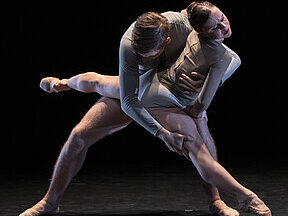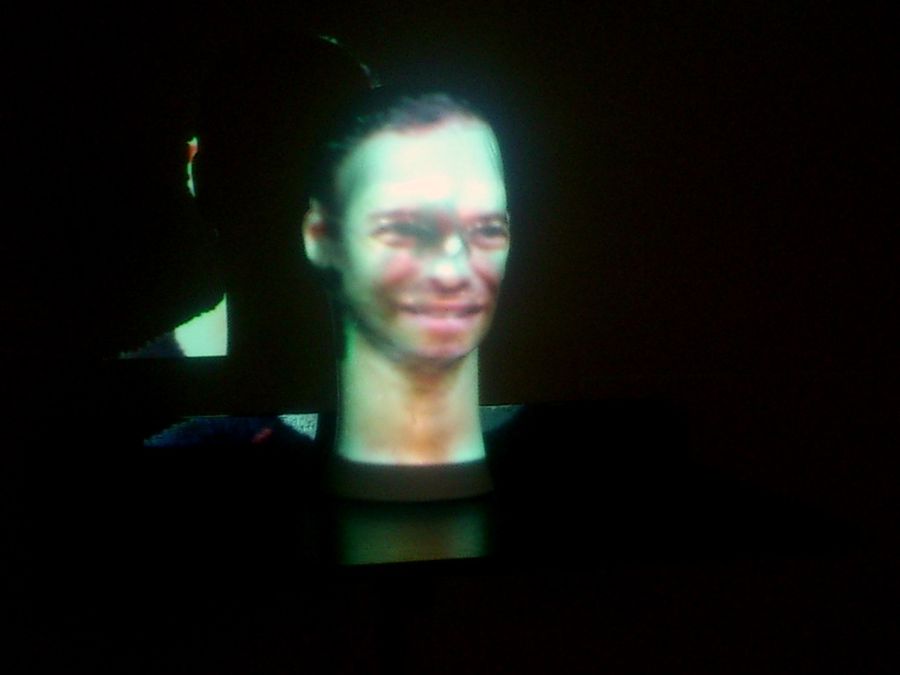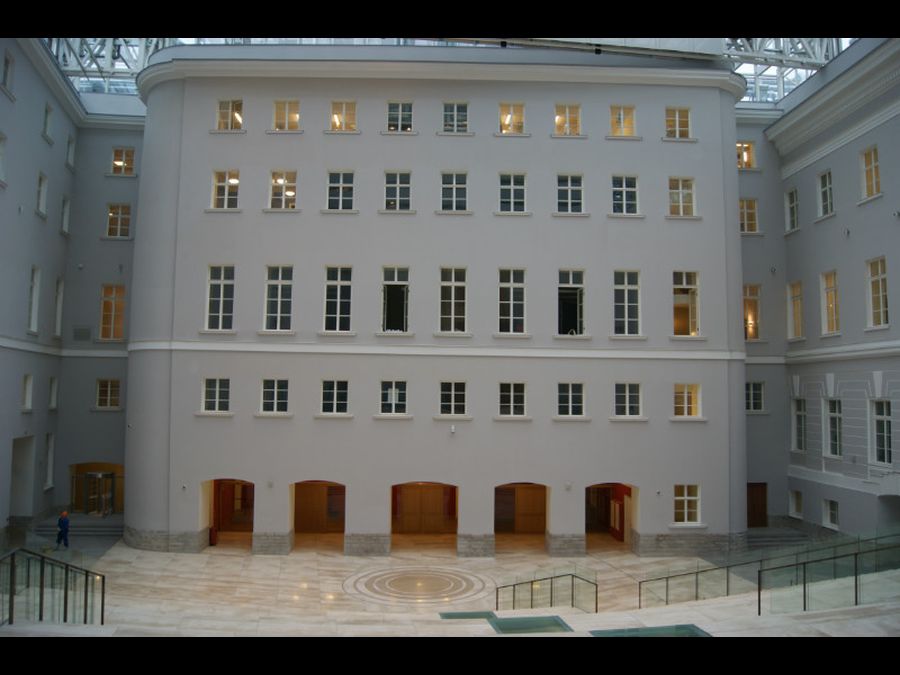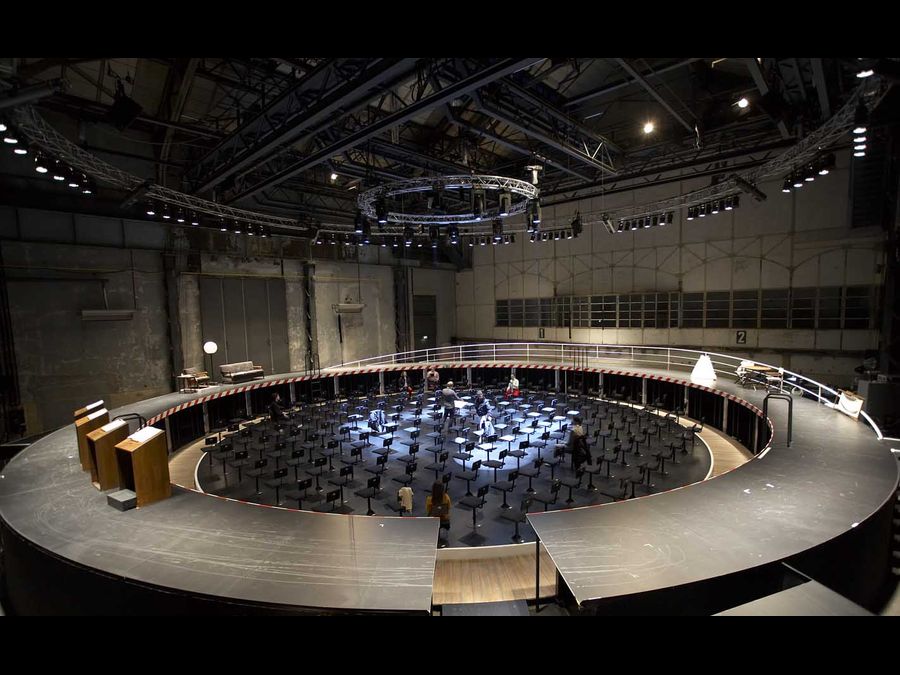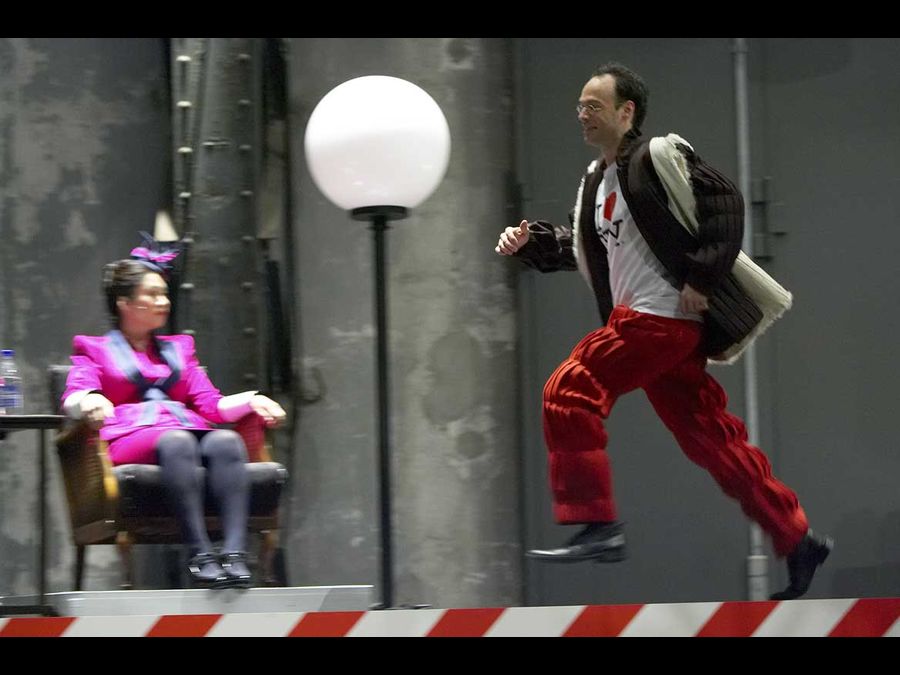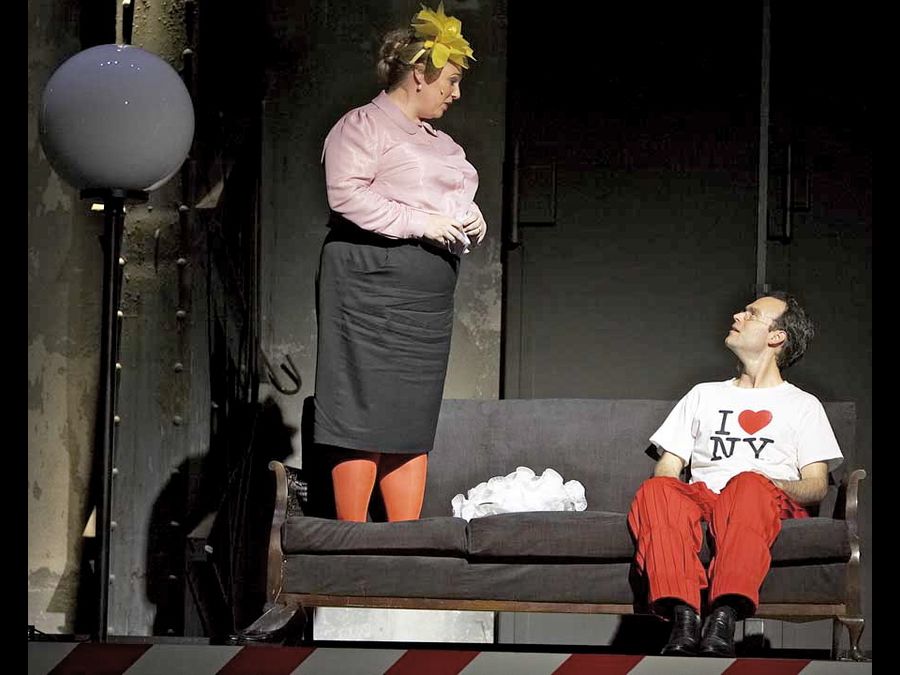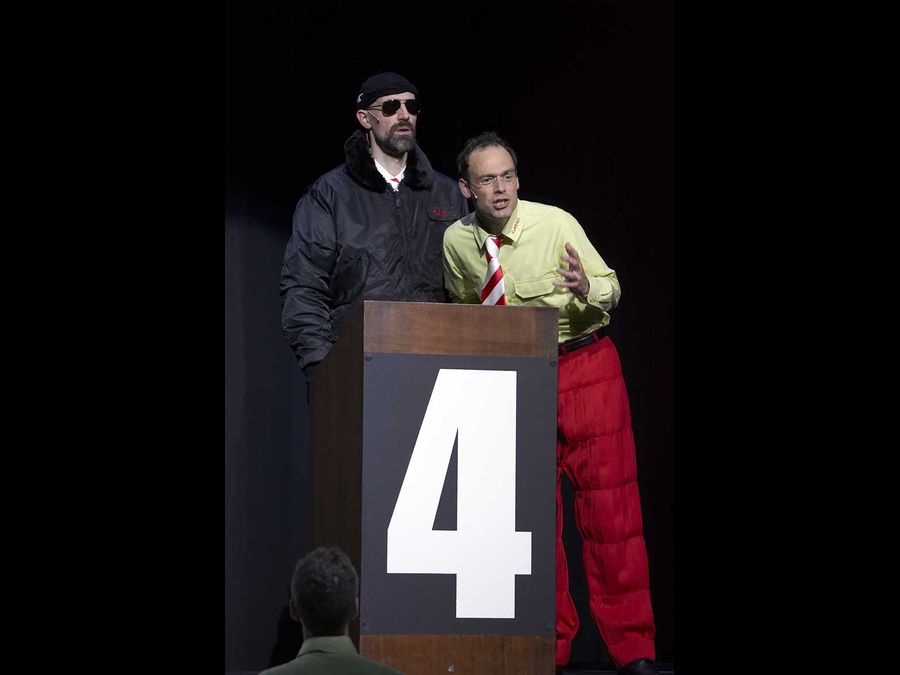The composition is based not only on poems and texts by surrealist poets, but also on texts by autists. At the beginning there is an almost inaudible moment. Breathing noises mix with amorphous sounds; isolated, autistic sounds soon develop into texts; singing emerges from sound structures of the voice stripped of all grammar and semantics. In the dramatic change from phonetic reduction to complex sound, Autland thematizes the speechlessness that arises from the feeling of isolation and powerlessness of the individual, and the struggle to overcome it. The composition is based not only on poems and texts by surrealist poets, but also on texts by autists. In an attempt to locate themselves in the confusing world, they use a visually powerful language that the composition encounters with its own dynamism and drama. At the centre is the canon Deo Gratias (1497) by Johann Ockeghem, edited by Titus Engel for 24 voices, a polyphonic sound cathedral for the praise of God. Here the artificial, infinite polyphony leads to dizzying spheres and – in the combination of all voices – the order of the canon ad absurdum. From the canon principle Sergej Newski develops his very own order and language system.
Credits
RuhrTrienniale 2009
Conductor: Titus Engel
Director: Beate Baron
Soloists VocaalLAB: Kaoli Isshiki, Bauwien van der Meer, Elsbeth Gerritsen, Gunnar Brandt-Sigurdsson, Arnout Lems, Hugo Oliveira
http://www.2009.ruhrtriennale.de/de/programm/2009/autland/
Maerzmusik
On 17 and 18 March 2012 Platforma Moscow
24 March 2012 19:30 Radialsystem Berlin
Recording Deutschlandradio Kultur
Programme: 12 July 2012, 00:05 hrs, New Music
http://www.7th-studio.ru/
02. October 2009 (UA)
Composition: Sergej Newski
Ruhrtriennale Bochum MarchMusic Berlin
Bochum / Berlin / Moscow

